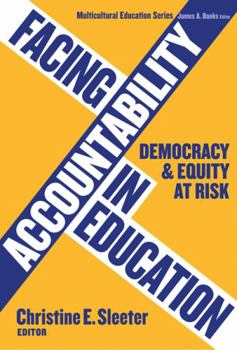Facing Accountability in Education: Democracy and Equity at Risk
Select Format
Select Condition 
Book Overview
In this authoritative volume, leading educators and scholars examine the current accountability movement and the extent to which it supports equity and democracy. They address how it was constructed, who it actually benefits, as well as how genuine progress can be made to close racial disparities in achievement. While the authors have different perspectives, they all share a commitment to improving education for all children, especially for those who have been historically underserved. Featuring case studies and critical analyses, this important volume examines:
The pressures placed on classroom teachers and how visionary school leaders can support equity and excellence in teaching. How a learner-centered model of instruction supports student achievement, as well as equity and democracy. Various meanings of accountability, focusing on those that have the best record for improving student learning. Who or what is driving accountability policy, who wins, and who loses as a result.Format:Paperback
Language:English
ISBN:0807747793
ISBN13:9780807747797
Release Date:April 2007
Publisher:Teachers College Press
Length:256 Pages
Weight:0.80 lbs.
Dimensions:0.7" x 6.3" x 8.9"
Customer Reviews
0 rating





